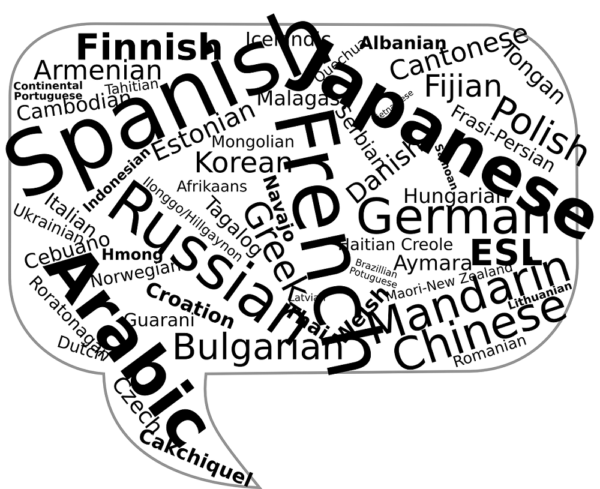This is just a little ‘did you know’ informational post on the subject of speaking in tongues, shared as some food for thought.
Did you realize that in Acts 2, the Bible only records about 120 people speaking in tongues? I know what many have been taught, but the Bible doesn’t say anyone else did on that day.
Acts 1:15 shows us that “a gathering of about one hundred and twenty persons was there together.” (NASB) There may have been more or less people when Pentecost actually came, however most Pentecostals use 120 as the number present. Verse 41 shows us that after Peter’s message, about 3,000 people became believers that same day and were water baptized. Yet there is not one word about them ever speaking in tongues. It is read into the text and assumed to have happened by those who believe all must/will/should speak in tongues.
Did you also realize that those who spoke in tongues on that day spoke about the mighty works of God? They were actual earthly known languages, understood by people from around the world who were gathered in Jerusalem. (see verses 7-11) There was no gibberish, repeated syllables or la-la-las such as we often hear today.
- And they were all amazed and marvelled, saying one to another, Behold, are not all these which speak Galilaeans? And how hear we every man in our own tongue, wherein we were born? Parthians, and Medes, and Elamites, and the dwellers in Mesopotamia, and in Judaea, and Cappadocia, in Pontus, and Asia, Phrygia, and Pamphylia, in Egypt, and in the parts of Libya about Cyrene, and strangers of Rome, Jews and proselytes, Cretes and Arabians, we do hear them speak in our tongues the wonderful works of God. KJV
- Utterly amazed, they asked: “Aren’t all these who are speaking Galileans? Then how is it that each of us hears them in our native language? Parthians, Medes and Elamites; residents of Mesopotamia, Judea and Cappadocia, Pontus and Asia, Phrygia and Pamphylia, Egypt and the parts of Libya near Cyrene; visitors from Rome (both Jews and converts to Judaism); Cretans and Arabs—we hear them declaring the wonders of God in our own tongues!” NIV
- They were amazed and astonished, saying, “Why, are not all these who are speaking Galileans? And how is it that we each hear them in our own language to which we were born? Parthians and Medes and Elamites, and residents of Mesopotamia, Judea and Cappadocia, Pontus and Asia, Phrygia and Pamphylia, Egypt and the districts of Libya around Cyrene, and visitors from Rome, both Jews and proselytes, Cretans and Arabs—we hear them in our own tongues speaking of the mighty deeds of God.” NASB
- They were completely amazed. “How can this be?” they exclaimed. “These people are all from Galilee, and yet we hear them speaking in our own native languages! Here we are—Parthians, Medes, Elamites, people from Mesopotamia, Judea, Cappadocia, Pontus, the province of Asia, Phrygia, Pamphylia, Egypt, and the areas of Libya around Cyrene, visitors from Rome (both Jews and converts to Judaism), Cretans, and Arabs. And we all hear these people speaking in our own languages about the wonderful things God has done!” NLT
Informational post on speaking in tongues #14: Almost Got the Spirit
Informational post on speaking in tongues #13: Praying Through
Informational post on speaking in tongues #12: Stammering Lips
Informational post on speaking in tongues #11: Prophesy
Informational post on speaking in tongues #10: One of many gifts
Informational post on speaking in tongues #9: Continued evidence
Informational post on speaking in tongues #8: Acts 8
Informational post on speaking in tongues #7: Acts 19:6
Informational post on speaking in tongues #6: Speaking in tongues a second time
Informational post on speaking in tongues #5: Acts 10:45-46
Informational post on speaking in tongues #4: Known languages
Informational post on speaking in tongues #3: 1 Corinthians 12:29-30
Informational post on speaking in tongues #2: 1 Corinthians 14:27-28
Informational post on speaking in tongues #1: Pray to interpret
********
Shop at our Amazon store! As an Amazon Influencer, this website earns from qualifying purchases.

